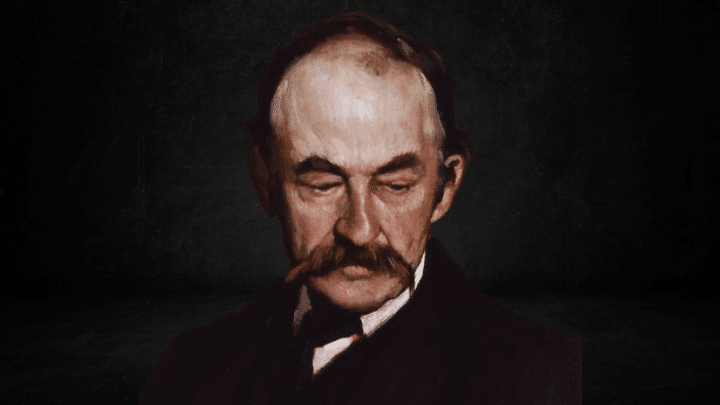10 Best Hilary Mantel Books You Should Read

Hilary Mantel, a name that resonates with contemporary readers, has penned numerous novels that have captured the hearts of critics and readers alike. Born in Derbyshire, England, in 1952, she has become one of the leading literary figures of our time, known for her compelling narratives, meticulously researched historical contexts, and captivating characters.
Mantel has received multiple awards throughout her career, including two Booker Prizes, highlighting her ability to weave historical events with intricate storytelling. Her prose is marked by an acute understanding of human nature, combined with a literary style that’s both eloquent and engaging.
Her body of work is impressive, containing a vast array of genres and themes. However, there are certain works that have truly defined her career. Whether you’re an avid fan of historical fiction or a reader who appreciates profound character exploration, Hilary Mantel’s books are a treasure trove of literary gems.
1. Wolf Hall
“Wolf Hall” is the first book in the Thomas Cromwell Trilogy, and it’s a mesmerising exploration of the rise of Thomas Cromwell in the court of Henry VIII. The novel starts with Cromwell’s humble beginnings and follows his cunning rise to power. The detailed portrayal of Tudor England is rendered with both historical accuracy and a refreshing modern perspective.
The novel’s success is not only rooted in its engaging plot but also in its innovative narrative techniques. Mantel’s use of the present tense and the shifting point of view provides an immediacy to the events and characters. Winning the Booker Prize in 2009, “Wolf Hall” has become a modern classic, studied for both its literary technique and historical insight.
2. Bring Up the Bodies
The sequel to “Wolf Hall,” “Bring Up the Bodies” continues the tale of Thomas Cromwell’s influence and the politics of Henry VIII’s court. This volume focuses on the downfall of Anne Boleyn, Henry’s second wife, and Cromwell’s role in engineering it. The setting remains in Tudor England, but the novel offers a darker, more intense exploration of power and ambition.
“Bring Up the Bodies” stands out as a Booker Prize winner and a masterfully crafted novel. Mantel’s writing is sharper and more focused in this sequel, honing in on the psychological depth of her characters. Critics have praised the novel for its eloquent prose and its nuanced portrayal of the complexity of human nature.
3. The Mirror and the Light
The final instalment of the Thomas Cromwell Trilogy, “The Mirror and the Light,” chronicles the last four years of Cromwell’s life. The novel explores the zenith of his power and his subsequent downfall. The complex political landscape of Tudor England serves as a backdrop to a tragic tale of ambition, loyalty, and betrayal.
Even though “The Mirror and the Light” did not win the Booker Prize like its predecessors, it was still met with critical acclaim. Mantel’s concluding volume is an intricate tapestry of storytelling, displaying a maturity in her craft. The novel offers a satisfying conclusion to the trilogy, reflecting on the impermanence of power and the human condition.
4. Beyond Black
Set in modern-day England, “Beyond Black” tells the story of a professional medium, Alison Hart, who communicates with spirits. However, her psychic gift is a curse, exposing her to the darkness of the afterlife and her tormented past. The novel is both a supernatural thriller and a social commentary on contemporary suburban life.
“Beyond Black” was shortlisted for the Orange Prize and is considered one of Mantel’s best works outside the historical genre. Her exploration of psychic phenomena is grounded in psychological realism, making the novel as unsettling as it is engaging. Critics have lauded the novel for its dark humour and unique take on themes of memory and trauma.
5. A Place of Greater Safety
“A Place of Greater Safety” is a historical novel focusing on the French Revolution. The story revolves around three young lawyers – Georges Danton, Maximilien Robespierre, and Camille Desmoulins – who become prominent figures in the Revolution. This sweeping epic captures the fervour, chaos, and tragedy of a crucial period in European history.
Though not as famous as the Cromwell Trilogy, this novel showcases Mantel’s profound understanding of history and her ability to bring it to life. Her detailed character studies and vivid depiction of the French Revolution have won admiration from readers and scholars alike. It’s a compelling read for those interested in both history and human psychology.
6. An Experiment in Love
“An Experiment in Love” is set in 1970 London and follows the story of three girls from their school days to adulthood. Through the lives of these characters, Mantel explores the complexities of friendship, love, and identity. The novel serves as a commentary on women’s experiences and societal expectations in the 20th century.
This work stands out for its rich characterisation and insightful exploration of women’s lives. Mantel’s ability to blend personal stories with broader social themes has been praised by critics. “An Experiment in Love” won the Hawthornden Prize and remains an important work in contemporary British literature.
7. Fludd
“Fludd” is set in 1950s England, in a small, superstitious Catholic village. The arrival of a mysterious priest leads to a series of miraculous and inexplicable events. The novel blends magical realism with a critique of religious dogma and the suffocating atmosphere of post-war Britain.
While “Fludd” may not be as well-known as Mantel’s other works, it is notable for its distinctive style and thematic richness. The novel’s combination of mystical elements and keen observations on faith and society make it a captivating read. Its literary merit lies in its imaginative storytelling and its provocative examination of belief systems.
8. Giving Up the Ghost: A Memoir
“Giving Up the Ghost: A Memoir” is Mantel’s personal account of her life. She opens up about her childhood, her struggles with illness, and her journey to becoming a writer. The memoir offers a poignant and often haunting glimpse into the mind of one of Britain’s most celebrated authors.
Though not a novel, this memoir is included in the list for its literary quality and emotional resonance. Mantel’s self-reflection and her exploration of memory, identity, and creativity make it a compelling read. Critics have praised “Giving Up the Ghost” for its lyrical prose and its honest portrayal of personal triumphs and tragedies.
9. Eight Months on Ghazzah Street
“Eight Months on Ghazzah Street” is a thriller set in Saudi Arabia. It tells the story of Frances Shore, a British expatriate, who unravels a mystery in her apartment building. The novel explores the cultural clash and the feeling of isolation in a foreign land, offering a tense and atmospheric reading experience.
This novel showcases Mantel’s ability to create suspense and her keen observations of cultural nuances. The depiction of Saudi society and the Western expatriate experience has drawn praise for its authenticity and insight. “Eight Months on Ghazzah Street” remains a thrilling and thought-provoking addition to Mantel’s diverse body of work.
10. Every Day is Mother’s Day
Mantel’s debut novel, “Every Day is Mother’s Day,” follows the story of a dysfunctional family and a social worker assigned to their case. Set in England, the novel explores themes of mental illness, isolation, and societal indifference. It’s a dark and unsettling portrayal of domestic life and the failure of social systems.
Mantel’s first work, “Every Day is Mother’s Day” introduced readers to her distinctive voice and thematic concerns. Though not as polished as her later novels, it’s a compelling read that showcases her potential as a writer. The novel’s exploration of mental health and its critique of societal apathy remain relevant and resonate with readers today.
Conclusion
Hilary Mantel’s body of work is a rich tapestry of historical and contemporary narratives, showcasing her remarkable talent and intellectual curiosity. Her ability to delve into different eras, cultures, and psychological landscapes has cemented her place as one of the greatest writers of her generation. Whether through the political intrigues of Tudor England or the personal struggles of modern-day characters, Mantel’s writing provides readers with a unique literary experience. Her books are not merely engaging stories but profound reflections on human nature, society, and the passage of time. The ten works highlighted in this article offer a comprehensive view of Mantel’s literary achievements and her continued contribution to the world of literature.






